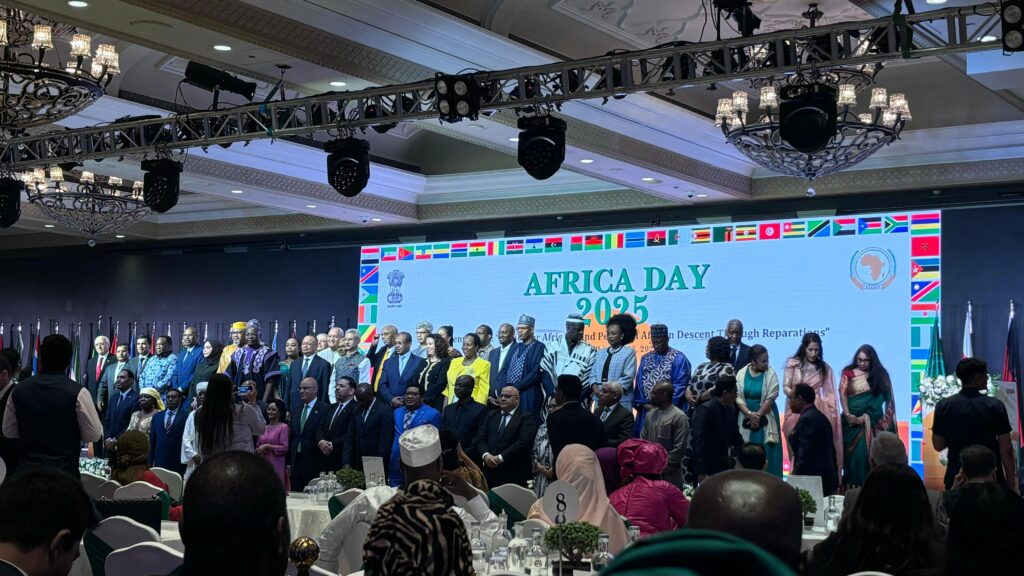RAO NARENDER YADAV
We need to see Africa in India—not just as a partner in diplomacy or business, but also as a vibrant and diverse cultural identity that deserves to be seen, heard, and celebrated

As I stepped out of the Africa Day celebration in New Delhi on May 28, still carrying the rhythm of the drums and the warmth of shared laughter, a soft, welcoming voice called out to me. “Excuse me, can I speak with you for a moment?” Turning around, I was greeted by a gentleman from Congo, his eyes curious but kind. He asked a question that stayed with me long after the conversation ended: “Why are you so interested in promoting Africa in India—when you’re neither a diplomat nor a businessman?” It was a simple query, but it touched the heart of a journey I’ve been on for years—one shaped not by career or commerce, but by connection, conviction, and an unwavering belief in cultural solidarity.
My answer, though unspoken at the time, is deeply rooted in the work I’ve been privileged to do. In 2015, I brought Nollywood—Nigeria’s vibrant and globally acclaimed film industry—to Indian audiences, hosting a special screening, as part of the Woodpecker International Film Festiva (WIFF), at Siri Fort Auditorium in New Delhi. It wasn’t just about showcasing films; it was about opening a cultural window, sparking dialogue, and giving Indian audiences a glimpse into Africa’s storytelling power. That moment was a milestone—not only in film appreciation but in bridging two cultural worlds that have long remained distant yet deeply compatible.
After the disruption and reflection brought on by COVID-19, I felt a renewed need and purpose to focus once again on making Africa visible in India—not through policies and papers alone, but through music, food, films, conversations, and the everyday magic of cultural exchange.
My decision to become a cultural ambassador of Africa in India was not born of obligation—it was born of love, heritage, and a deep belief in the power of cultural connection. Despite the growing political and economic ties between Africa and India, cultural understanding remained a missing link. While Indian markets welcome African minerals and Indian universities host thousands of African students, African stories, art, music, and lived experiences remain on the margins of mainstream Indian discourse.

I was moved by the stories of African students facing stereotypes in Indian cities, by the beauty of African art that remains unseen in Indian galleries, and by the untold history of solidarity between freedom movements across our continents. This invisibility is not just a cultural loss—it’s a missed opportunity for India to truly engage with a continent that mirrors its own youthful energy, diversity, and aspirations.
We need to see Africa in India—not just as a partner in diplomacy or business, but as a vibrant, complex identity with much to offer. Stereotypes persist where understanding should flourish, and curiosity is often clouded by unfamiliarity. I believed, these gaps could be transformed into shared experiences through cultural diplomacy, education, media, and regular interactions.
Through the African Centre of India, I chose to dedicate myself to showcasing the vibrancy, diversity, and creativity of Africa—through music, films, festivals, cuisine, academic exchanges, and storytelling.
Becoming a cultural ambassador is not just a title—it’s a responsibility to speak for voices unheard, to celebrate identities unrecognized, and to bring the soul of Africa closer to the heart of India. In doing so, I hope to help build not just partnerships, but a shared future rooted in dignity, dialogue, and deep cultural respect.
(Author is the Director, African Centre of India (ACoI) – a New Delhi based Think-Tank focusing on India-Africa relations. View are personal)